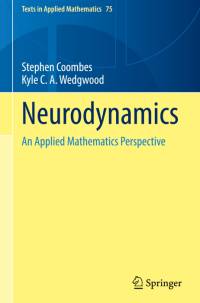Om Neurodynamics
This book is about the dynamics of neural systems and should be suitable for those with a background in mathematics, physics, or engineering who want to see how their knowledge and skill sets can be applied in a neurobiological context. No prior knowledge of neuroscience is assumed, nor is advanced understanding of all aspects of applied mathematics! Rather, models and methods are introduced in the context of a typical neural phenomenon and a narrative developed that will allow the reader to test their understanding by tackling a set of mathematical problems at the end of each chapter. The emphasis is on mathematical- as opposed to computational-neuroscience, though stresses calculation above theorem and proof. The book presents necessary mathematical material in a digestible and compact form when required for specific topics. The book has nine chapters, progressing from the cell to the tissue, and an extensive set of references. It includes Markov chain models for ions,differential equations for single neuron models, idealised phenomenological models, phase oscillator networks, spiking networks, and integro-differential equations for large scale brain activity, with delays and stochasticity thrown in for good measure. One common methodological element that arises throughout the book is the use of techniques from nonsmooth dynamical systems to form tractable models and make explicit progress in calculating solutions for rhythmic neural behaviour, synchrony, waves, patterns, and their stability. This book was written for those with an interest in applied mathematics seeking to expand their horizons to cover the dynamics of neural systems. It is suitable for a Masters level course or for postgraduate researchers starting in the field of mathematical neuroscience.
Visa mer

